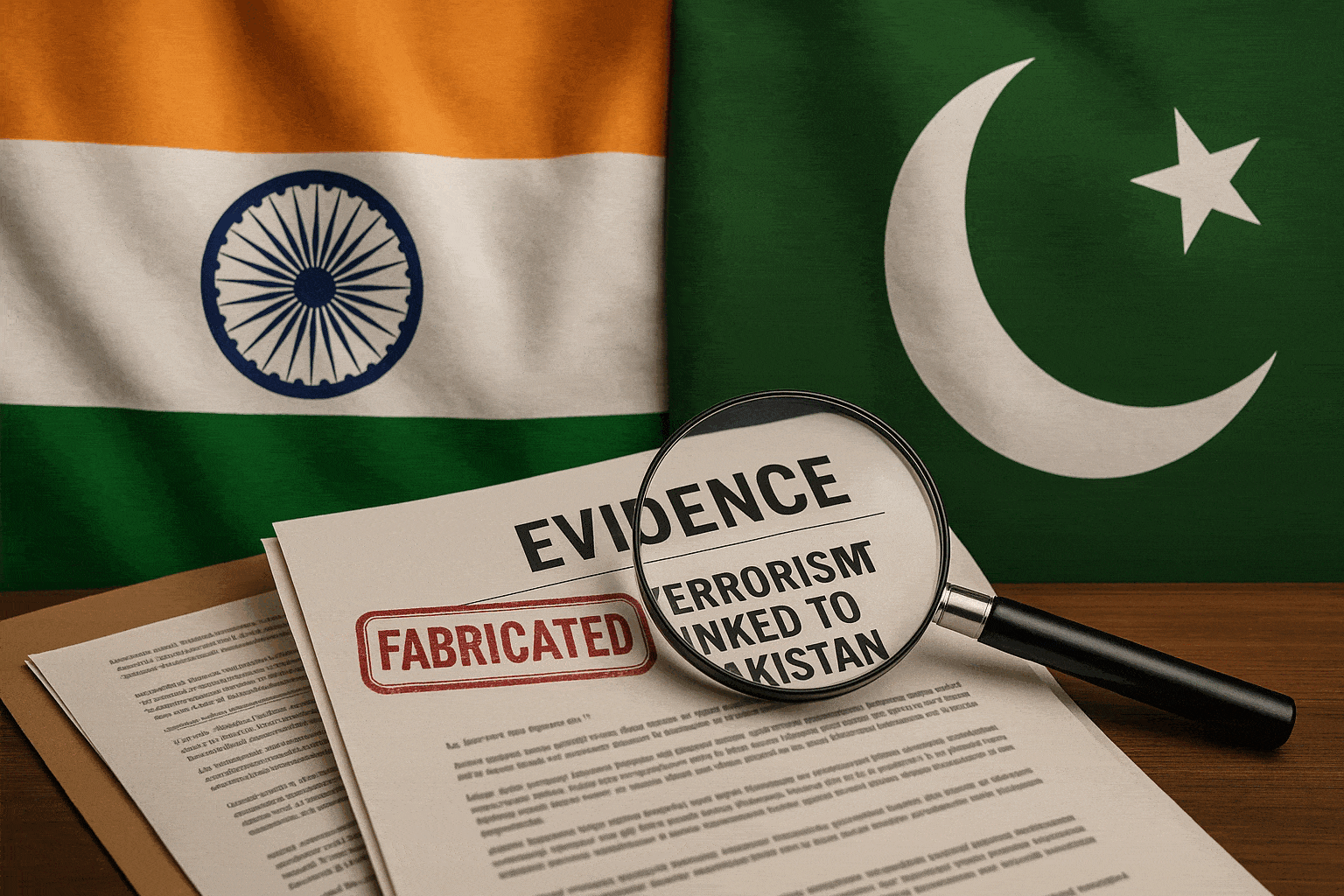INDIA’S FRENZY TO CRAFT EVIDENCE TO BLAME TERRORISM ON PAKISTAN

There is a classic fable of the young lamb and the hungry wolf, which highlights how sinister motives are masked through false accusations. The fable narrates how the wolf levelled different unjustified accusation against the lamb to justify its action. “If not you, then it must have been your father! And for that, you shall pay!” said the wolf when all its accusations were dismissed by the lamb through facts and logical reasoning. The moral of the story is simple and straightforward: if someone wants to harm you, they will always find an excuse to act upon their evil motives.
Though Pakistan does not resemble the lamb of the fable thanks to its solid base of power, the wolf fits the character of India. Over the decades, the politico-military elite in Delhi has developed the habit of blaming Pakistan for its own security failures. This “blaming syndrome” has got worst under the Modi Sarkar, which is driven by the ideological imperatives of Hindutva.
As usual, India rushed into pointing the finger of blame at Pakistan following the Pahalgam incident in IIOK on April 22, 2025. Military threats accompanied the false accusations. The Indian behavior was, however, not unusal or unprecedented for Pakistan as similar behaviorial patterns have been observed by Islamabad in the past. It appears that past incidents like Uri (2016) and Pulwama (2019) have repeated themselves. One can easily observe that India is picking up the threads of its past way of holding Pakistan responsible for its own security failures. It seems that India has gain some mastery of manufacturing crises through false flag operations to justify aggression against Pakistan. On the diplomatic front, India exploits such incidents to tarnish the image of Pakistan and to play the card of “victimhood” in order to gain the sympathy and support of the international community. Precisely speaking, from Uri to Pulwama and now Pahalgam, India follows a clear and repeated pattern: stage an attack, assign blame, create media frenzy, and reject neutral investigations.
Immediately after the Pahalgam incident, India launched a media war to defame Pakistan instead of permitting an impartial inquiry as demanded by Islamabad. Blaming Pakistan without investigation and credible evidence after incidents like Pahalgam is not just irresponsible, it is extremely dangerous as it may lead to an all-out war, possibly ending with the exchange of nuclear weapons. The world, in fact, cannot afford a fully-blowen war between the two south Asian nuclear giants and it must, therefore, play its role to diffuse tension between the two. Any concrete step towards this direction should be discourging India from playing havoc with its own failures and renouncing rewarding India’s fabricated narratives. The international community, especially the great powers, should stop turning a blind eye to Indian sponsor of terrorism in Pakistan, especially in Balochistan. The world should seriously take into account the evidences Pakistan has gathered vis-à-vis India’s involvement in fomenting and backing terrorist activities in Balochistan through Baloch terrorists. Pakistan has lost many precious lives by the hands of terrorist groups in the province.
The arrest of Kulbhushan Jadhav by security agencies of Pakistan in Balochistan is indicative of India’s role in orchestrating attacks and arming militants there.
As Balochistan is critical for the success of the CPEC, India attempts to sabotage the project to harm the economic wellbeing of Pakistan. attempting to sabotage CPEC. India views Pakistan’s economic rise especially through CPEC as a threat to its regional dominance, and appears to do whatever is at its disposal to make the CPEC a failure. And, this is not a security policy, but an economic war waged under the guise of terrorism.
Now, India has cowardly attacked some parts of Pakistan, targeting purely civilian infrastructure and lives. The swift response of Pakistan’s armed forces has shattered the pride of Indian army and its hubris. The failure of Rafael jets to threaten Pakistan in the post-Pahalgam incident raises serious questions about their operational effectiveness, leading to the removal of the IAF Vice Air Chief to avoid accountability. The downing of several Indian military aircrafts and UAVs by Pakistan and the launch of “Operation Bunyan Marsoos” on May 10, 2025 by Pak army has the scenario. Pakistan’s resolve and action to safeguard its territorial integrity and national sovereignty at any cost have given a clear message both to India and the world: strategic patience has limits; we are good at settling debts (hamain qarz otarna ata hey).












